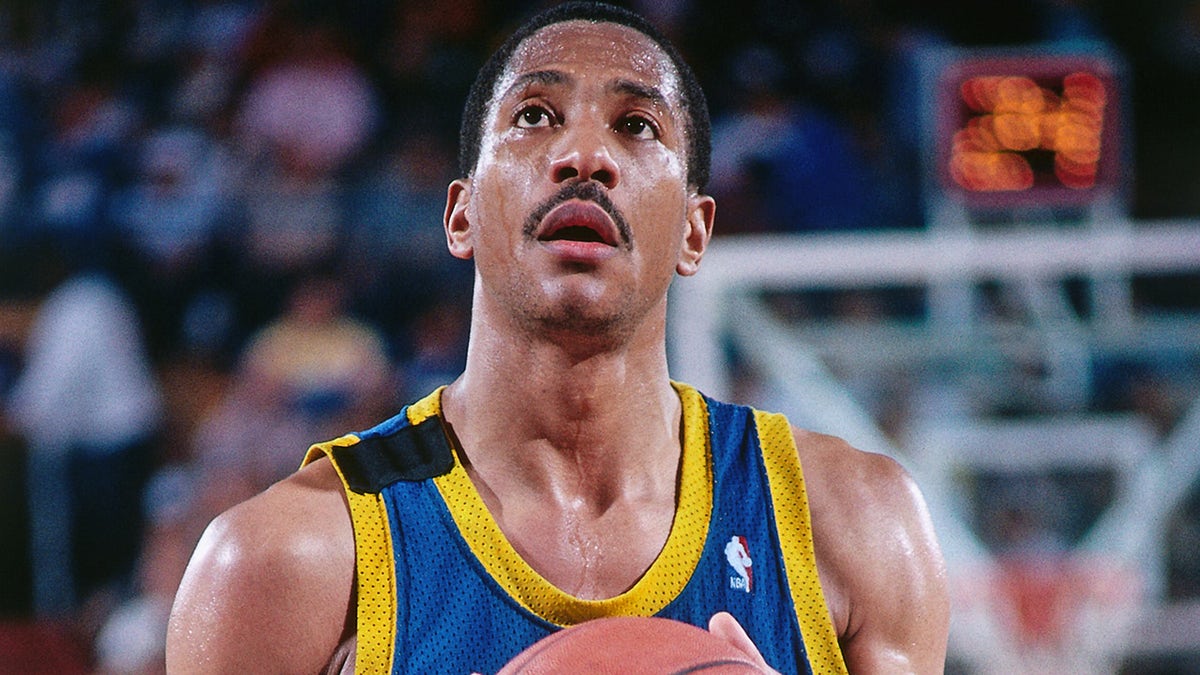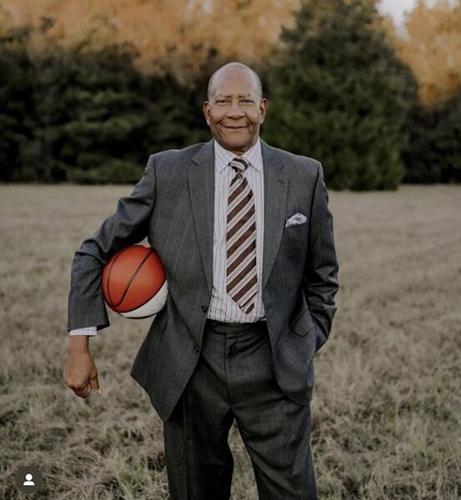Alex English (Part 2)
Alex English (Part 2)

Frustrated with his limited playing time with the Milwaukee Bucks, Alexander English sought a fresh start and signed with the Indiana Pacers as a free agent following the conclusion of the 1977–78 NBA season. Joining the Pacers provided English with the opportunity he was seeking, as he quickly earned a spot in the team's starting lineup.
As a starter for the Pacers, English wasted no time in making his mark, showcasing his scoring prowess and steadily building a reputation as a prolific scorer in the league. Despite playing for a Pacers team in the midst of a rebuilding phase, English's offensive skills shone through, as evidenced by his impressive scoring average of 16 points per game during the 1978–79 season.
Establishing himself as a key contributor on the court, English's performances helped solidify his position as a vital asset for the Pacers and further cemented his reputation as a talented scorer in the NBA. His tenure with the Pacers marked a significant turning point in his career, setting the stage for even greater achievements and recognition in the years to come.

Alexander English's career took a significant turn when he was traded to the Denver Nuggets midway through the 1979–80 NBA season in exchange for George McGinnis, a former star of the Pacers' American Basketball Association (ABA) days. Despite McGinnis coming off an All-Star season in 1978–79, his performance with the Nuggets fell short, and he was out of the league by 1982.
Upon joining the Nuggets, English quickly established himself as a star player, showcasing his scoring prowess and becoming a cornerstone of the team's success. In his first full season with the Nuggets in 1980–81, English averaged an impressive 23.8 points per game, marking a significant milestone in his career.
The following seasons saw English's star continue to rise. In the 1981–82 season, he elevated his game even further, averaging 25.4 points per game and earning a spot on the All-Star Team as well as the All-NBA Second Team. English's scoring prowess reached new heights in the 1982–83 season when he captured the league scoring title with an impressive average of 28.4 points per game, solidifying his status as one of the NBA's premier offensive talents.
English's contributions to the Nuggets' success were invaluable, especially during the 1984–85 season when he raised his scoring average to 27.9 points per game, helping fill the void left by the departure of Kiki Vandeweghe. Despite Vandeweghe's absence, the Nuggets thrived, winning their division and securing the second seed in the Western Conference./cdn.vox-cdn.com/uploads/chorus_image/image/70959153/983028240.0.jpg)
During the 1985 playoffs, English played a pivotal role in the Nuggets' postseason run, averaging an impressive 30.2 points per game. However, his playoff campaign was cut short due to a right thumb injury sustained in Game 4 of the Western Conference Finals against the Los Angeles Lakers. The injury required surgery, forcing English to sit out the remainder of the series. Some believed that English's absence significantly impacted the Nuggets' chances against the Lakers, with English himself expressing regret over the injury and its potential impact on the outcome of the series. Despite the setback, English's contributions to the Nuggets' success during this period solidified his legacy as one of the greatest players in franchise history.
During the 1985–86 NBA season, Alexander English reached the pinnacle of his scoring prowess, averaging a career-best 29.8 points per game. This remarkable performance placed him third in the league scoring race, behind Dominique Wilkins and Adrian Dantley. Additionally, English showcased his skills on the grand stage of the 1986 NBA All-Star Game, where he recorded a career-high 16 points in just 16 minutes off the bench for the Western Conference team.
English continued his stellar play into the 1986 NBA playoffs, leading the Denver Nuggets past the Portland Trail Blazers in the first round. In the Western Conference Semifinals, he maintained an impressive average of 29.2 points, 4 rebounds, and 4 assists per game in a hard-fought six-game series loss to the eventual Western Conference champion Houston Rockets. Despite the Nuggets' defeat, English's standout performances solidified his reputation as one of the league's premier scorers.
In recognition of his contributions both on and off the court, English was honored with the J. Walter Kennedy Citizenship Award in 1988, underscoring his commitment to community service. One of the memorable highlights of his career came on March 10, 1989, when he scored 51 points without attempting a single three-point shot and recorded nine assists in a thrilling overtime loss to the Miami Heat.
However, as the 1989–90 season unfolded, English's production began to decline, with his scoring average dropping to 17.9 points per game. Facing the end of his contract and a shift in the team's direction, the Denver Nuggets decided not to re-sign English, marking the conclusion of his illustrious tenure with the franchise. Despite the downturn in his final season with the Nuggets, English's impact and legacy as one of the greatest players in team history remained indelible.
References
- Denver Post: 4T. Alex English, 42 points vs. Rockets, May 8, 1986
- ^ "Denver Nuggets NBA awards: All the winners in team history". hoopshype.com. August 8, 2019.
- ^ Wellbaum, Chris (September 24, 2020). "A'ja Wilson is just three years into her professional career, but she is already a rarity among former Gamecocks". southcarolina.rivals.com.
- ^ Daily Nugget: Alex English's 51-point performance against Miami
- ^ Smith, Sam. "In Plain English: Alex Not A Happy Nugget". Chicago Tribune. Retrieved July 22, 2017.
- ^ "NBA & ABA Career Leaders and Records for Points". Basketball-Reference. Archived from the original on February 25, 2011. Retrieved November 26, 2019.
- ^ "How Nuggets legend Alex English finally got his due". DenverPost.com. May 8, 2020.
- ^ "Alex English". landofbasketball.com. Retrieved January 31, 2021.
- ^ "15 players you forgot suited up for the Denver Nuggets". HoopsHabit.com. March 22, 2020.
- ^ "Alex English Stats". Basketball-Reference.com. Archived from the original on March 20, 2019. Retrieved December 2, 2017.
- ^ "Who Scored The Most Points In The NBA In The 80s". StatMuse. Retrieved June 29, 2019.
- ^ "NBA 75: At No. 71, Alex English made his presence felt as a scorer, trendsetter and motivated philanthropist".
- a b c "Alex English". Toronto Raptors. Retrieved July 26, 2019.
- ^ "NBDL 2001–02 Season Summary". Basketball-Reference.com. Retrieved July 26, 2019.
- a b "Alex English hired by Kings as assistant coach". ESPN. January 13, 2012. Retrieved July 26, 2019.



















































